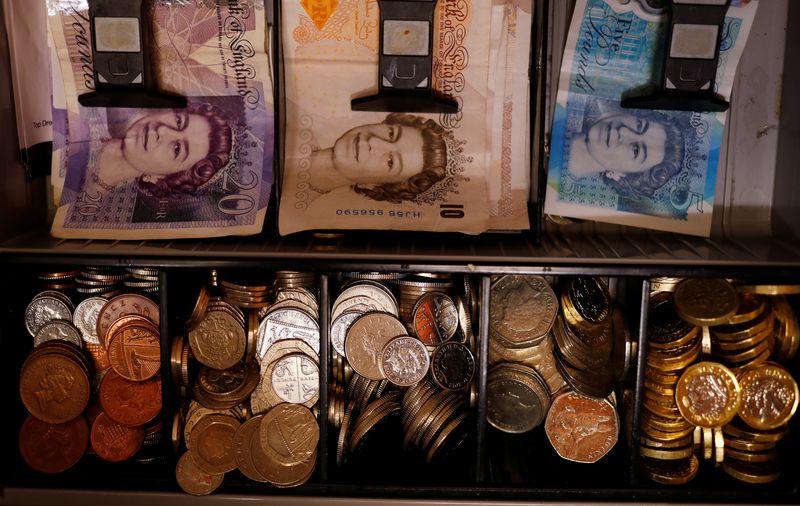(Reuters) - Sterling fell against a strengthening dollar on Monday but was still within striking distance of last week's 1-1/2 week high as recent economic data provided some reason for optimism about the UK's economic outlook.
The safe-haven dollar rose as increased violence in the Middle East spooked markets, after a blowout U.S. jobs report gave the currency a leg up.
Sterling was down 0.4% at $1.2180 after touching its highest level since Sept. 29 on Friday.
Two days earlier, on Wednesday, the pound had retreated to $1.2038, its lowest since mid-March. A weaker outlook in the UK combined with the resilience of the U.S. economy weighed on sterling, amid expectations the Federal Reserve will hike interest rates again while the Bank of England's (BoE) path is more uncertain.
"We keep forecasting no further rate hikes by the BoE, but data and events scheduled this week in the UK might affect market expectations," said Roberto Mialich, global forex strategist at Unicredit (BIT:CRDI).
He pointed to the BoE Financial Policy Committee Summary and Record to be published on Tuesday and gross domestic product data on Thursday.
Some analysts argued that last week's economic figures from the UK have provided some grounds for optimism.
The final reading of the S&P Global UK Services Purchasing Managers' Index (PMI) hit an 8-month low but was better than a preliminary "flash" reading of 47.2.
Investors see little chance of another BoE rate hike at the next policy meeting in November, but they are pencilling in one more rate increase in 2024.
Money markets price in a 25% chance of a BoE move in November, but the chances rise to 40% in December and 50% in February.
The Bank of England Credit Conditions Survey, due on Thursday, will be crucial for understanding the strength of household consumption and business investment going forward, said Sanjay Raja, senior economist at Deutsche Bank (ETR:DBKGn).

Raja forecast sluggish figures but argued that households and businesses have been running down their savings in lieu of borrowing.
"As such, adjusting for deposit flows, our estimate of the credit impulse sits at a positive 2.9% of GDP." The pound was flat against the euro at 86.44 pence per euro.